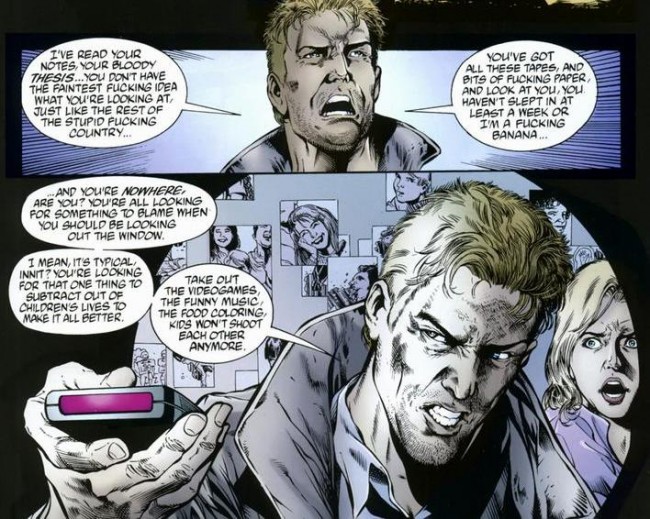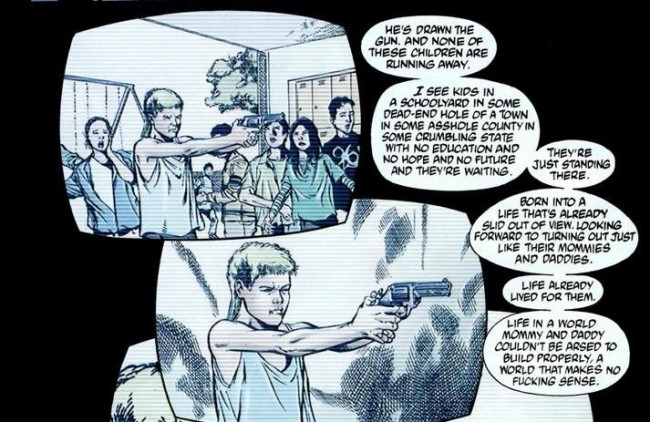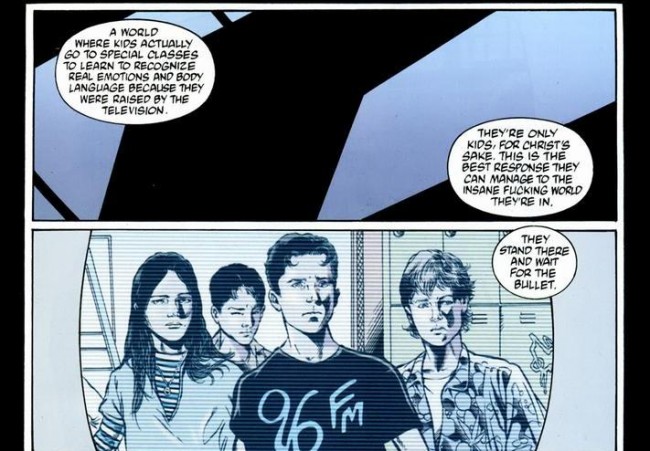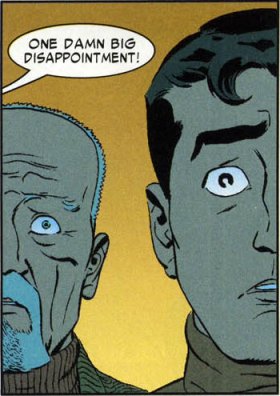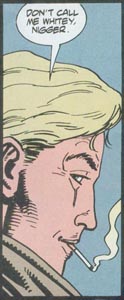
Warren Ellis’ Shoot
November 13th, 2010 Posted by Esther Inglis-ArkellIn late October, Vertigo published Vertigo Resurrected, a collection of rare stories. One of them was Shoot, a story about schoolyard shootings in America by Warren Ellis. Before it was published, the Columbine shooting happened. According to Ellis, DC wanted to change the story, he refused, they refused to publish, and that was that.
The new people at DC had a different take, and obviously it’s been a while since Columbine, and so the story came out. I don’t have any problem with Ellis refusing to change his story. That’s his decision. I have to say, though, that I think not publishing it, especially at the time, was the right call. That’s a debate for another time.
For now, I’m looking at the content of the story. Reading Shoot left me feeling acutely annoyed. On his blog, Warren Ellis says that he intended the story to be horror, not social commentary. Reading the story, I’m not sure that’s true. It’s a Hellblazer story, so it has John Constantine swaggering across the page, saything pithy and clear-sighted things. In the last few pages, he gives a long speech about what prompted the shooting. I can’t say the speech wrong. What I can say, is the speech is completely off the mark.
Let’s see what we have in the paragraphs above. The first two panels are Constantine ridiculing the woman for thinking there is any one thing that made the kid do it. It wasn’t violent video games, or movies or music. Those ideas are stupid and simplistic.
So what’s his take?
Second scan, second bubble: “These are the end times.”
Second scan, fourth, fifth and sixth bubble: “The sins of the father are visited on the son.”
Third scan, first bubble: “Television is taking over.”
Third scan, second bubble: “Think of the children.”
Although the ‘raised by television’ argument is a new one, it harkens back to boarding schools, nannies, the modern novel, the internet, pacifiers, and any other invention that lets parents forget they’re parents every once in a while. The rest are biblically old. They were trotted out to explain everything from plagues to fires to pre-marital sex. They’re not useful advice. They’re not insight. They’re not even observations. They’re slogans.
And they’re slogans that can be used for anything. I’m willing to bet the people Constantine ridicules used the same lines he does. ‘Our society is crumbling’ is a set up used for any argument, from lowering taxes to distributing condoms in schools. And I know that the ‘raised by television’ bit and ‘parents asleep at the wheel’ bit were trotted out by people wanting to ban graphic video games and violent music.
To be honest, if asked to side with a person making Constantine’s speech or someone who wanted to start a campaign to tone down video game violence, I’d go with the latter. Not because I think it would work, but because it’s something. It’s some concrete step. It’s some way to engage with kids. And if it doesn’t work, it can be changed.
What Constantine is offering is a four word explanation for everything. “Society is to blame.” Well, okay. Thanks for letting us in on that.
Now what?

